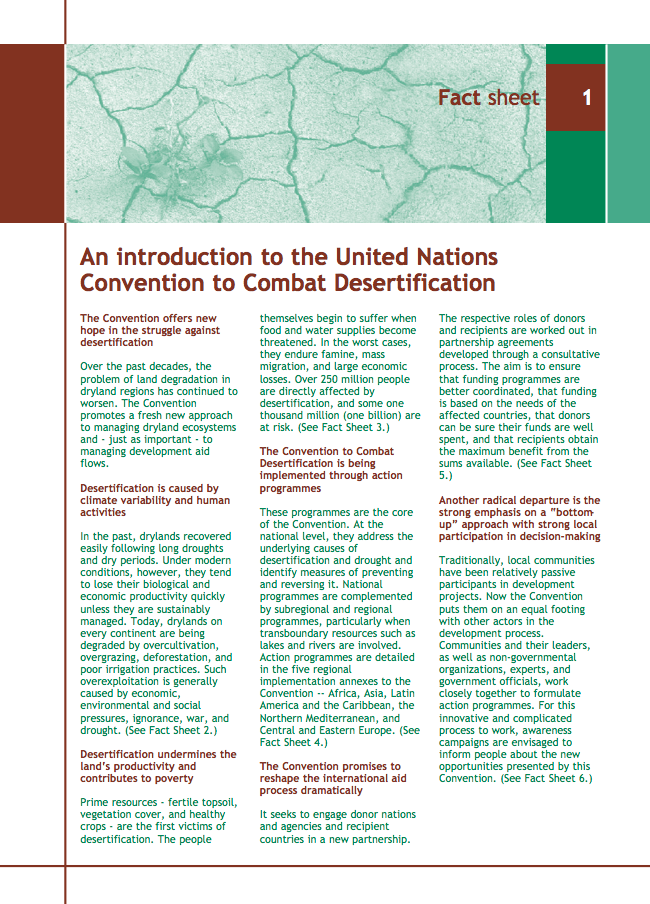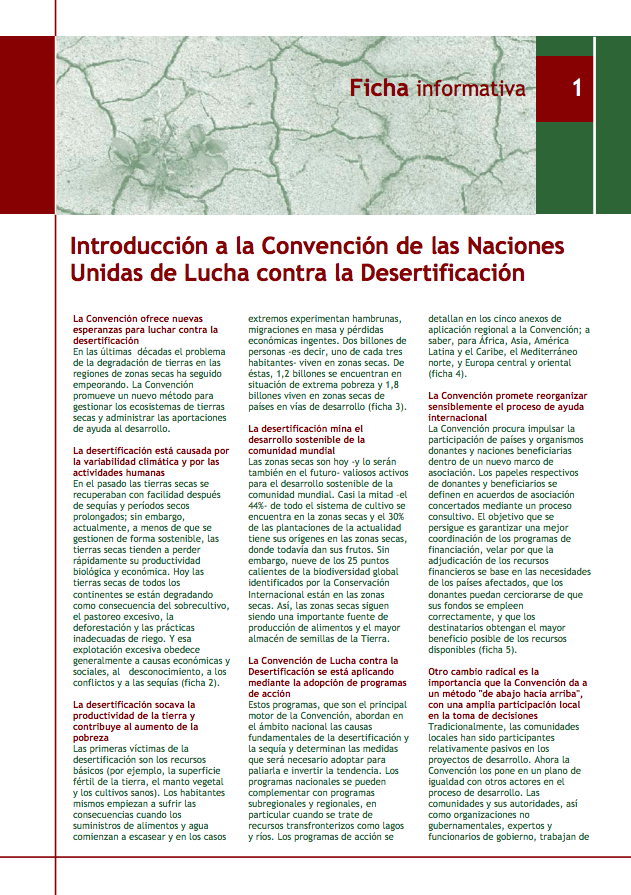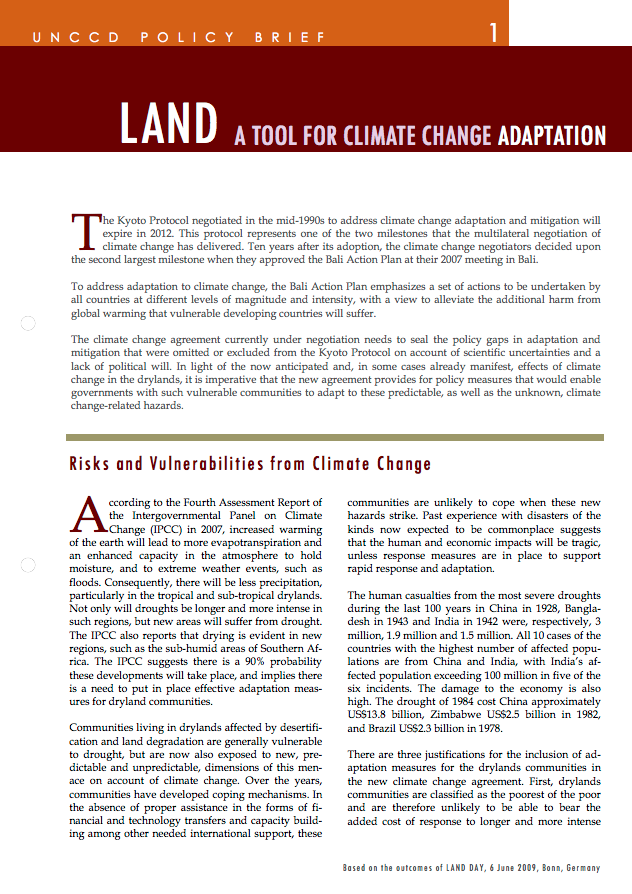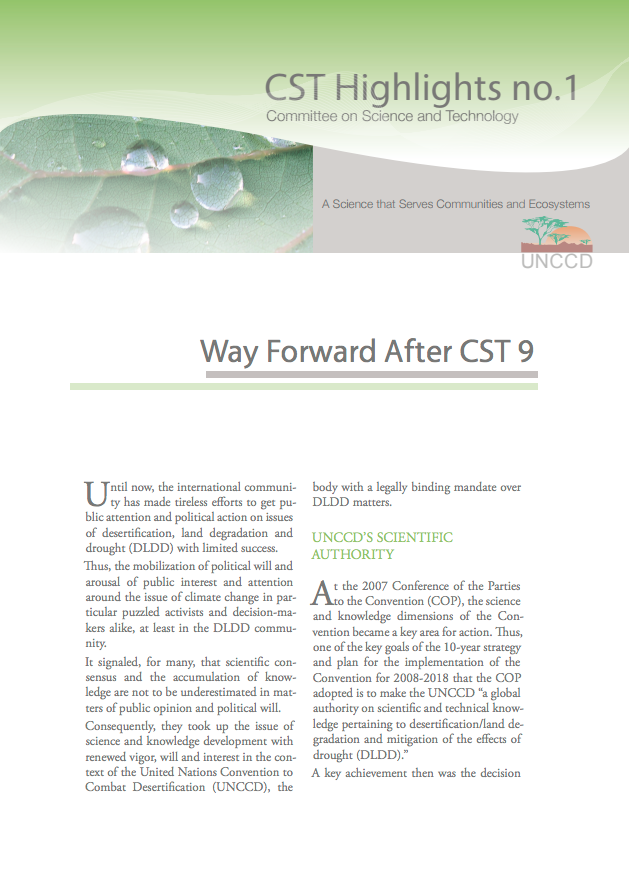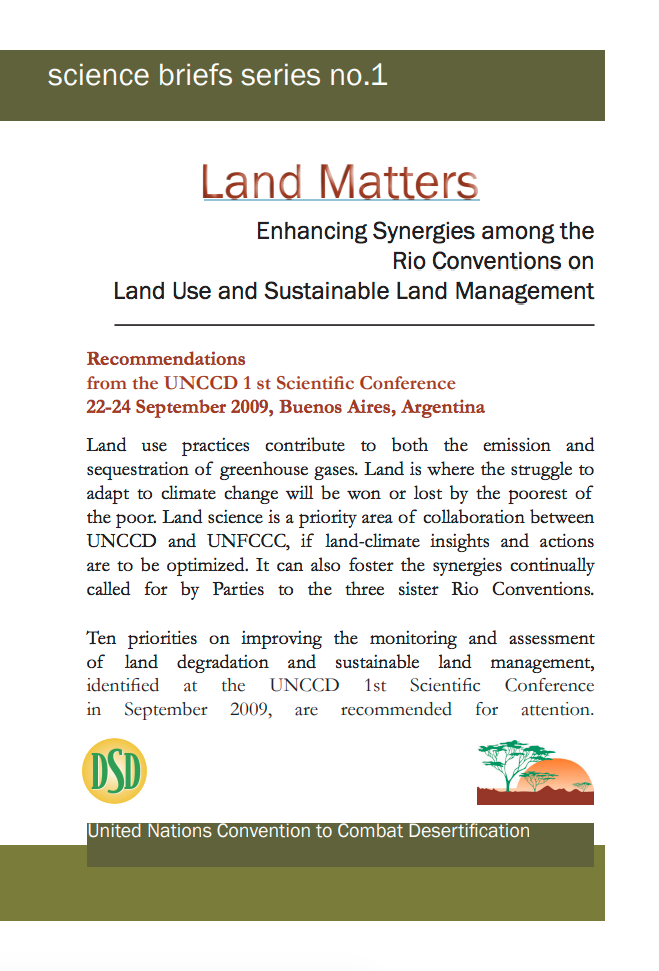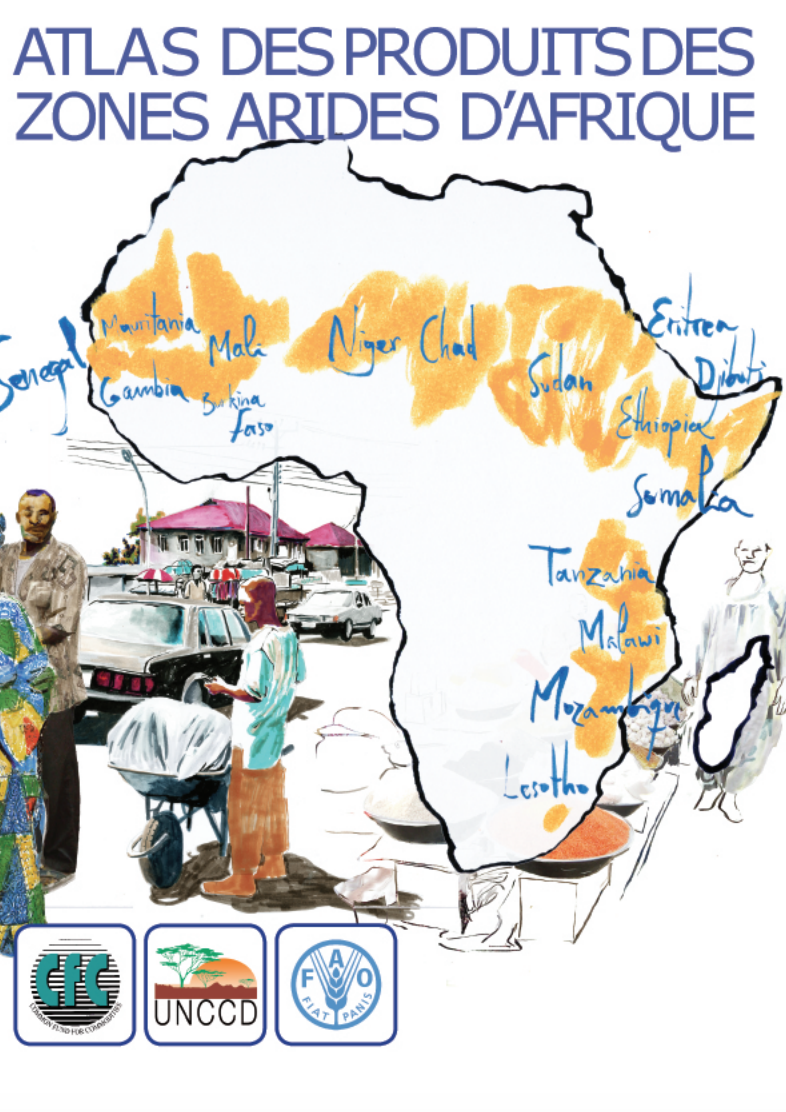UNCCD Factsheet: An introduction to the United Nations Convention to Combat Desertification
The Convention offers new hope in the struggle against desertification Over the past decades, the problem of land degradation in dryland regions has continued to worsen. The Convention promotes a fresh new approach to managing dryland ecosystems and - just as important - to managing development aid flows.

